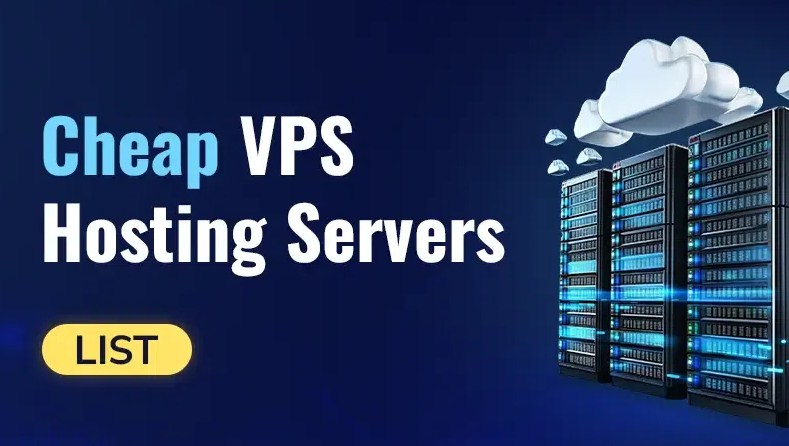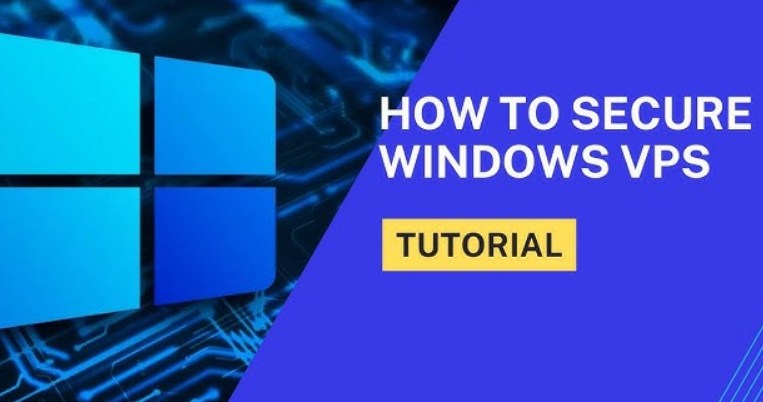Cheap VPS Servers – When running an online business, having reliable and affordable hosting is essential. Virtual Private Servers (VPS) are an ideal solution for businesses that need more resources than shared hosting but don’t want to pay the premium prices of dedicated servers. In this guide, we’ll explore everything you need to know about cheap VPS servers, their benefits, key features, and how to choose the best option for your business. We’ll also dive into five top-rated VPS providers, compare their offerings, and help you make the best choice for your website.

What is a Cheap VPS Server?
A Virtual Private Server (VPS) is a virtualized server that acts as a dedicated server but is hosted on a shared physical machine. This allows you to have more control over your environment at a much lower cost than a dedicated server.
A cheap VPS server offers great performance, scalability, and control while being budget-friendly. It typically includes:
- Dedicated Resources: Unlike shared hosting, your VPS provides you with allocated resources such as RAM, CPU, and storage.
- Root Access: You can install software and manage configurations as you wish.
- Scalability: You can easily upgrade resources as your website grows.
- Improved Security: With your own virtual environment, VPS hosting often provides better security than shared hosting.
Why You Need a Cheap VPS Server
Cost-Effective Solutions for Small and Medium Businesses
A VPS offers many of the advantages of a dedicated server, but at a fraction of the cost. Small and medium-sized businesses (SMBs) that need more power than shared hosting can provide, but can’t justify the high costs of a dedicated server, find cheap VPS servers to be the perfect middle ground.
High Performance
VPS servers are designed to handle higher traffic volumes, faster load times, and better performance compared to shared hosting. If you’re running an e-commerce store, a blog, or any resource-intensive website, you’ll notice a significant performance boost.
Flexibility & Control
With VPS hosting, you have more control over the server configuration, which is crucial for web developers and businesses with specific needs. You can install custom software, optimize the server settings, and tailor the server environment to your needs.
Benefits of Cheap VPS Hosting
Cheap VPS hosting provides several benefits, from better control and flexibility to improved speed and security. Let’s break down these benefits in more detail.
1. Cost-Effective Scalability
One of the major advantages of a cheap VPS server is scalability. With VPS hosting, you can upgrade or downgrade your resources (CPU, RAM, bandwidth) as your website grows. This allows businesses to pay only for the resources they need and adjust them as their traffic or workload changes. 🌱
2. Improved Security
With a VPS, your website is isolated from other users on the same physical server, which reduces the risk of security breaches. You also have the ability to install and configure advanced security features like firewalls, SSL certificates, and security patches.
3. Dedicated Resources
Unlike shared hosting, where you share server resources with other users, a VPS guarantees dedicated resources for your website. This means better performance, especially during traffic spikes, and a smoother user experience for your visitors.
4. Full Root Access
With a VPS, you have full root access to your server, which allows you to install custom software, manage server configurations, and fine-tune the server for optimal performance.
5. Better Performance Compared to Shared Hosting
Cheap VPS hosting often provides superior performance compared to shared hosting. The dedicated resources on a VPS mean faster loading speeds, less downtime, and improved performance under heavy traffic conditions.
Top 5 Cheap VPS Hosting Providers
Let’s take a closer look at five of the best cheap VPS hosting providers, including their features, pricing, pros, and cons. We’ll help you decide which one suits your needs best.
1. Hostinger
Features:
- Managed VPS hosting
- SSD storage for faster load times
- Free website migration
- 24/7 customer support
- 30-day money-back guarantee
Use Case: Best for businesses looking for an affordable managed VPS hosting solution with excellent support and performance.
Pros:
- Affordable pricing
- Great customer support
- SSD storage for faster performance
- Free website migration
Cons:
- Limited server locations
- Higher renewal rates
Pricing: Starting at $3.99/month
2. A2 Hosting
Features:
- Turbo boost option for faster speeds
- Free website transfer
- 24/7/365 customer support
- Multiple operating system options
Use Case: Ideal for businesses needing high-speed VPS hosting with flexibility in terms of OS and configurations.
Pros:
- Turbo servers for improved speed
- Free website transfer
- Wide range of operating system choices
Cons:
- More expensive than entry-level VPS providers
- Renewal prices can be high
Pricing: Starting at $4.99/month
3. InMotion Hosting
Features:
- SSD-powered VPS
- Free website migration
- 90-day money-back guarantee
- Root access for full control
Use Case: Perfect for businesses that need fast SSD VPS hosting with a reliable support team.
Pros:
- High-speed SSD storage
- Free website migration
- Excellent uptime and reliability
Cons:
- Higher initial cost
- Limited server locations
Pricing: Starting at $19.99/month
4. Bluehost
Features:
- Free domain for the first year
- Free SSL certificate
- 24/7 customer support
- Managed VPS hosting
Use Case: Suitable for businesses looking for reliable VPS hosting with managed support and additional perks like a free domain.
Pros:
- Reliable uptime
- Managed VPS hosting with support
- Free SSL and domain
Cons:
- Higher renewal rates
- Limited customization options
Pricing: Starting at $19.99/month
5. DigitalOcean
Features:
- Cloud-based VPS hosting
- SSD storage
- 24/7 customer support
- Multiple data center locations
Use Case: Best for developers and businesses that want to control their cloud infrastructure while maintaining low costs.
Pros:
- Affordable cloud hosting options
- SSD storage
- Great for developers with full control
Cons:
- More suitable for experienced users
- No traditional customer support options
Pricing: Starting at $5/month
Comparison Table
| Provider | Use Case | Pros | Cons | Price (Starting) |
|---|---|---|---|---|
| Hostinger | Affordable managed VPS for SMBs | Low-cost, SSD storage, 24/7 support | Limited server locations, high renewal rates | $3.99/month |
| A2 Hosting | Speed-focused VPS for e-commerce | Turbo servers, free transfer, flexible OS | Higher cost, renewal pricing | $4.99/month |
| InMotion Hosting | Fast VPS for business growth | SSD-powered, excellent uptime, 90-day guarantee | Higher initial cost, limited locations | $19.99/month |
| Bluehost | Managed VPS for small business | Free SSL, domain, reliable support | Higher renewal rates, limited customization | $19.99/month |
| DigitalOcean | Cloud VPS for developers | Cloud flexibility, SSD storage, great control | Not beginner-friendly, no direct support | $5/month |
How to Buy a Cheap VPS Server
Step 1: Identify Your Needs
Before buying a cheap VPS server, determine your business’s specific hosting requirements. Consider factors like:
- Website Traffic: How much traffic do you expect? If you expect high traffic, look for a VPS with more resources.
- Technical Expertise: Are you comfortable with configuring the server, or do you need managed hosting?
- Budget: How much are you willing to spend on hosting each month?
Step 2: Choose the Right Provider
Once you know your needs, pick a provider that matches your requirements. Consider performance, support, and features when comparing the options listed above.
Step 3: Sign Up and Configure
After choosing a provider, sign up for a plan that meets your needs. During the setup process, you’ll configure your VPS, including the operating system and any custom software.
Step 4: Set Up Your Website
Once your VPS is ready, you can install the necessary software to run your website. This may include a web server, database, and content management system (CMS).
Step 5: Launch and Monitor
After everything is set up, launch your website and monitor the server’s performance to ensure it meets your expectations.
Frequently Asked Questions (FAQs)
1. What is the difference between VPS and shared hosting?
Answer: In shared hosting, you share server resources with other websites, whereas a VPS provides dedicated resources for your website, offering better performance and security.
2. Can I upgrade my VPS plan?
Answer: Yes, most VPS providers allow you to upgrade your resources (RAM, CPU, storage) as your needs grow.
3. Do I need technical knowledge to use a VPS?
Answer: While VPS hosting gives you more control, you don’t need to be a tech expert. Managed VPS plans provide support and simplify setup.
4. Is VPS hosting secure?
Answer: VPS hosting is generally more secure than shared hosting, as you have your own isolated environment. You can also implement additional security features.
5. How do I migrate my website to a VPS?
Answer: Many VPS providers offer free website migration services. You can also manually migrate your website using FTP and a control panel.
By understanding the benefits and detailed features of cheap VPS hosting, you can make a well-informed decision that meets your business needs. Whether you’re scaling a website or looking for better performance, VPS hosting is an affordable and powerful solution!
Read More >>>
- OVH Cheap VPS: Affordable and Reliable Hosting Solutions for Your Business in 2024
- Buy Cheap VPS with Crypto: Affordable Hosting Solutions for Your Online Business
